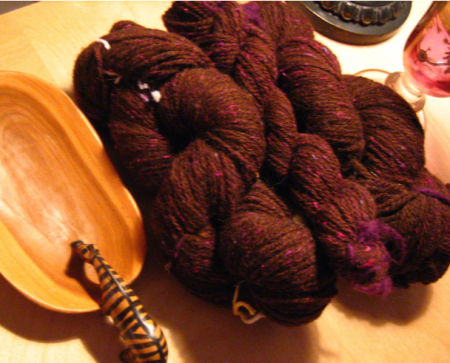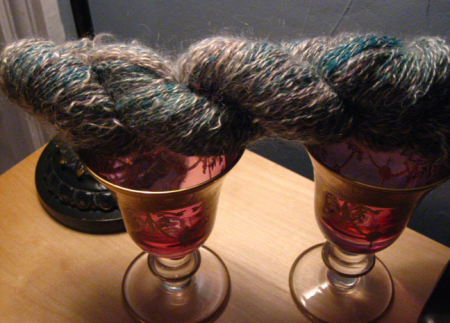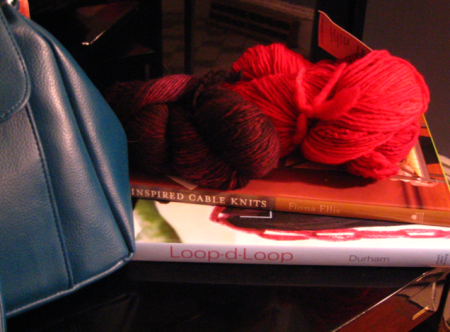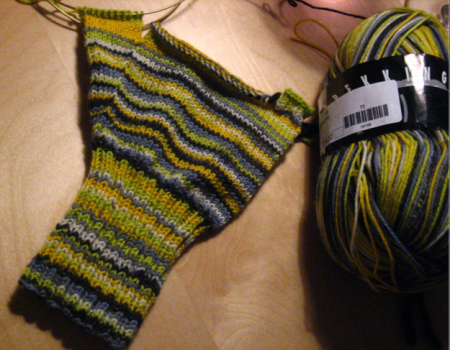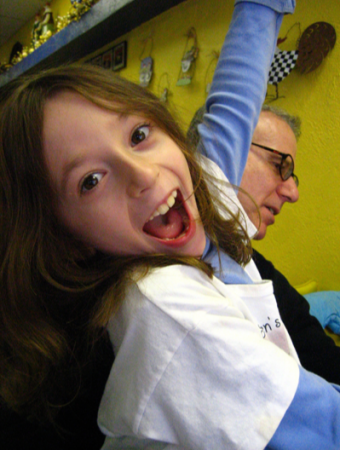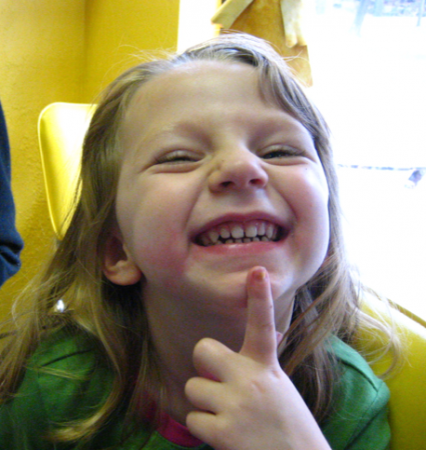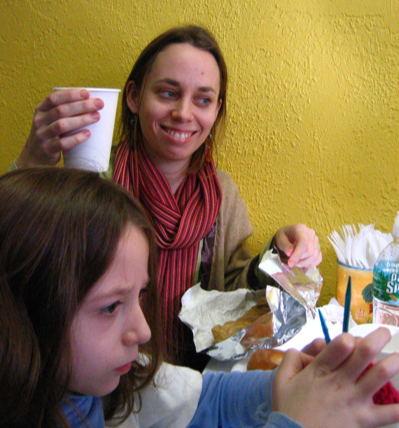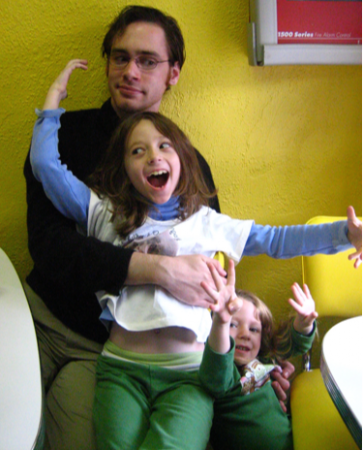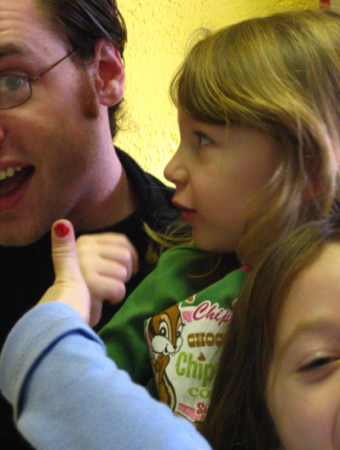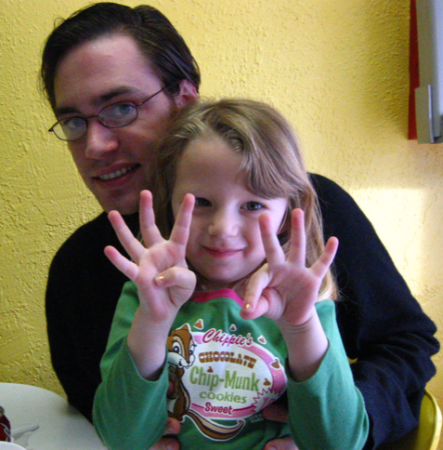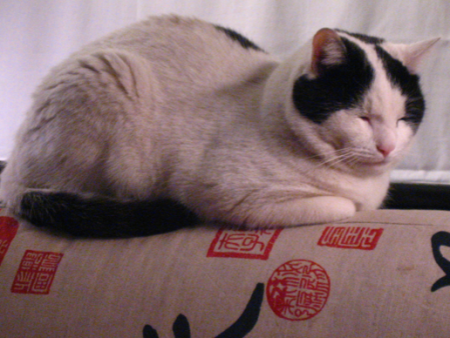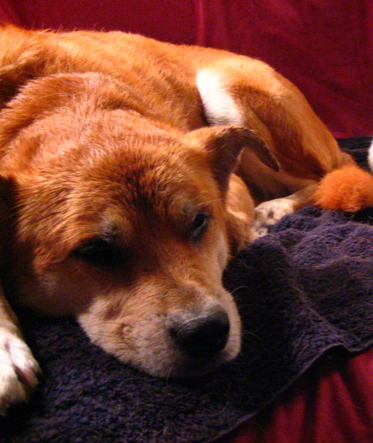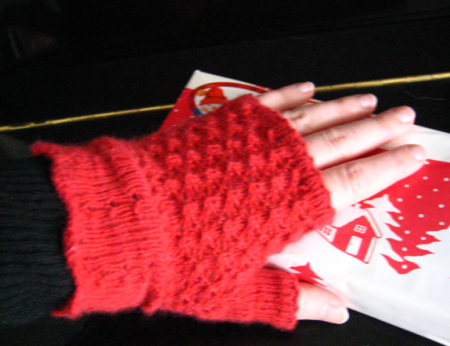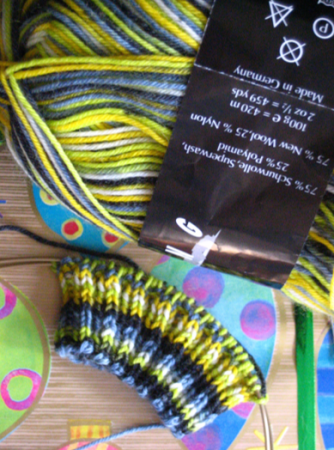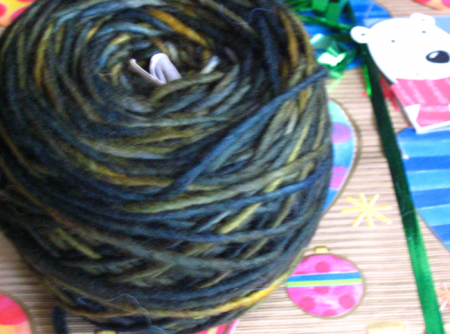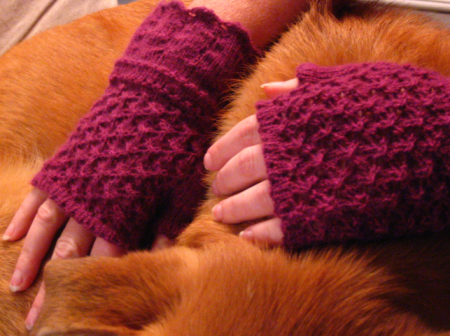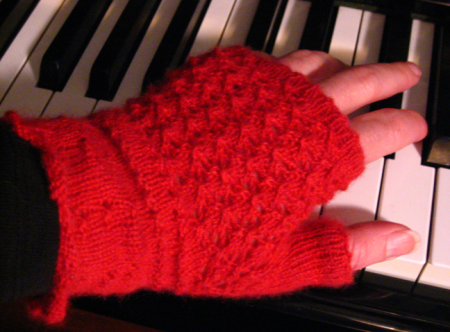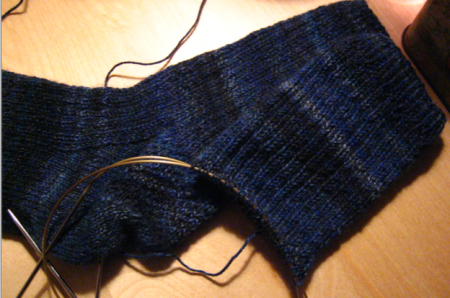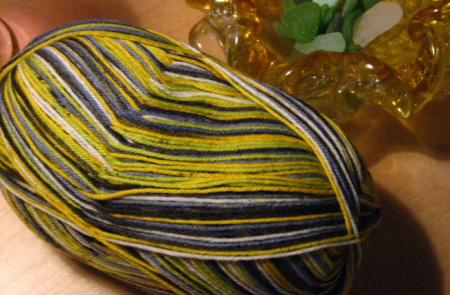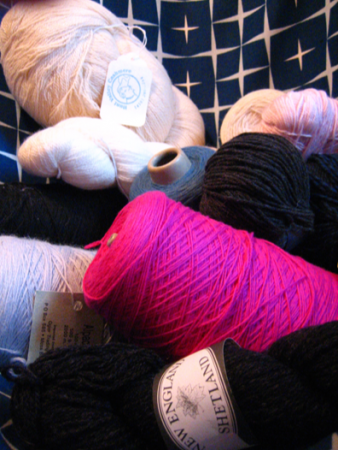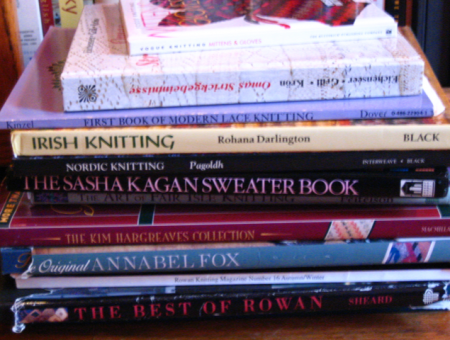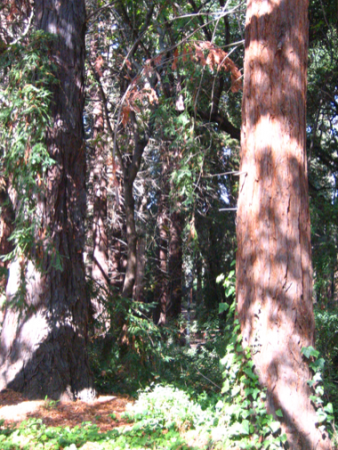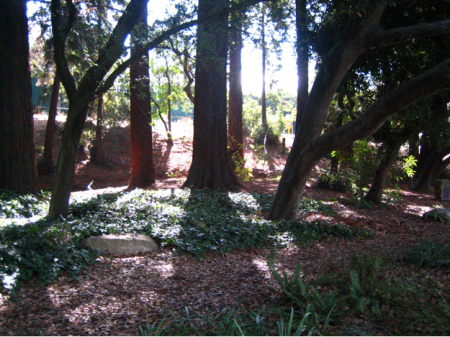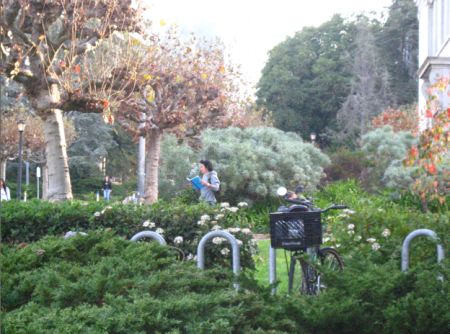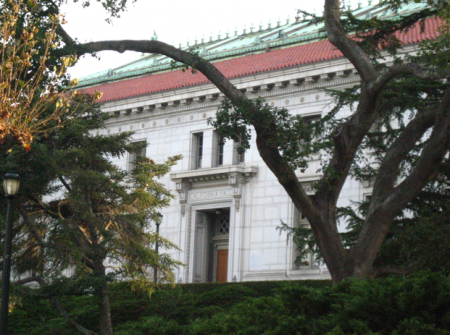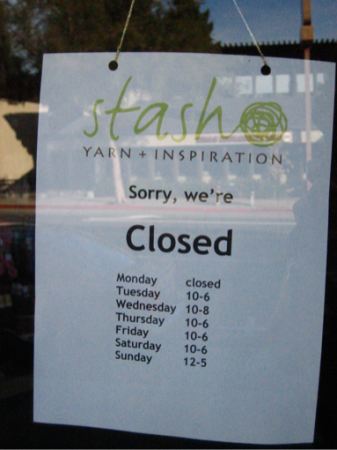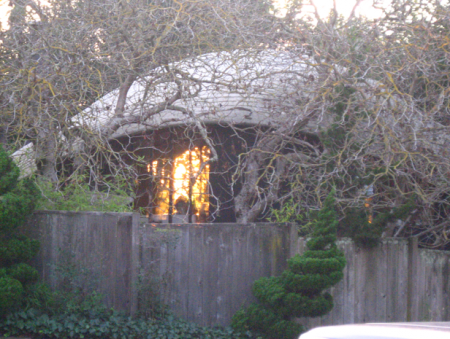Before she died, before she even knew she was sick, my friend and former housemate Mara gave me Leslie Marmon Silko’s novel Ceremony. She gave me her own copy from college, with her collegiate marginalia annotating the text—she was clearly trying to come up with a paper topic at the last minute, scribbling things like, “We need other people to help us. Can’t do it entirely alone. Relate to Aristotle?”—and the extension number for her phone in the dorm inside the front cover.
Mara gave me the book because Silko’s invocation of uranium mining on Native American land and the detonation of the first atomic weapons relates to some of the research I am doing for my dissertation and Mara felt, I think, that reading it might not only interest me, but also deepen my work as an historian.
She gave me this book in early 2004 when I was in the midst of writing my first major paper and, facing deadlines and all manner of pressing demands, I kept it unopened in my stack of “books to be read.”
Shortly thereafter, Mara was diagnosed with colon cancer—a pathology so statistically improbable in a woman in her early 30s that her doctors did not catch it until the cancer was very far advanced—and she died in September 2005. At the time, I struggled to make any sense at all of her death. Any sense at all. I can’t say that the past year and three months has given me any measure of comfort in that regard, but simply because time has passed I have, I suppose, gotten used to the fact that she is gone.
I have been thinking about her a lot lately, partly because for me the holidays always conjure up thoughts of those who are no longer with us, and partly because I read Ceremony last week. For many months the book’s close association with Mara had made it too painful for me to crack. But it finally seemed like the right time, as though I was at a point where I could absorb the message Mara wanted me to get from this novel, a message that through literature, through a story, she could deliver to me across that unknowable boundary that separates the dead from the living. And reading this book, which has so much to do with storytelling, healing, and a cyclical (as opposed to linear) understanding of time, was indeed a very powerful experience for me.
Being a scholar, my initial response was to go to the library and dig deeper. That led me to a collection of interviews with Leslie Marmon Silko, which I began reading rather carefully. This quote from Silko about storytelling on the Laguna Pueblo stopped me in my tracks:
“…there was an old custom, long ago, where the storyteller would say to one of the persons in the room, ‘Go open the door, go open the door so that they can come in,’ and it was as if ‘they,’ being ancestors, can come in and give us their gifts which are these stories, and that through the stories, somehow, even though people may be dead or gone or time is gone a long way in the past, that through the storytelling there was a belief that it all came back very immediately, that it came right back in the room with you. And so the storytelling in that sense was an act of…so that there wasn’t anything lost, nothing was dead, nobody was gone, that in the stories everything was held together, regardless of time.”
It struck me as I read this that we need this kind of storytelling in our lives, even if our postmodern assumptions won’t accommodate the idea of the immediate presence of our ancestors or past times, even if our linear sense of time tells us that once a person is dead, she’s gone forever. I began to ponder what exactly I am doing here on the blog when I tell you stories about my great-grandfather’s favorite joke, or my uncle’s approach to dieting, or my Great Aunt Frances’s knitted wedding dress. I concluded that I might be participating in a great 21st-century cyber version of “opening the door so that they can come in,” and that when you read these stories and respond to them, it is as though we are all sitting in an unbroken circle, where those who are gone are brought back to us and nothing is lost.
In that spirit, and because she was in effect the one who led me to contemplate this particular power of storytelling, I would like to tell you a story about my friend Mara, and the kind of person she was.
Mara had a delicious, sly sense of humor, she almost never complained, she kept her troubles to herself, she was a talented and greatly loved teacher at the Aurora School in Oakland, California, she had a remarkable aura of calm (particularly remarkable to those of us who are, ahem, a bit more, how shall we say?, agitated perhaps?), and she was really, really beautiful. I felt that this last attribute was underappreciated by men for reasons I am hard pressed to explain except by resort to the notion that they must have been blind.
While we were living together, she once admitted to me that she sometimes found it really annoying to have housemates, and I laughed because it was a feeling which I shared, and yet she said it in such a way that I understood that the comment was directed at the general condition of life with housemates and not at me personally. She used to go hiking every Saturday morning in the hills above Berkeley’s campus and then swing by the farmer’s market and buy the most seductive looking vegetables you have ever seen in your life. California’s finest produce. She made the most consistently delectable dietary choices of anyone I have ever met, which was entirely consonant with her life philosophy, one based on finding something to love in every day and in taking joy in everyday things.
Some Saturdays I went hiking with her. On one memorable occasion, we encountered a huge, bright orange fungus with great undulating ruffles, like a sea creature, growing up at the base of a tree. She stopped short, right there on the trail, and pointed it out to me. “That’s incredible,” she said. “That’s one of the most incredible things I have ever seen!” Her joy, awe, and appreciation for the natural world, even its less obviously attractive elements, was compelling and infectious. I never go hiking, or for that matter encounter a fabulous fungal growth, without remembering Mara.
This holiday season, I hope you take time to tell your own stories, the ones that create and maintain those connections to people and times past, and I hope that through these stories, you can create a moment in which nothing is lost, nobody irretrievably gone.
And here is my holiday wish for all of us: may everything be held together, regardless of time.
